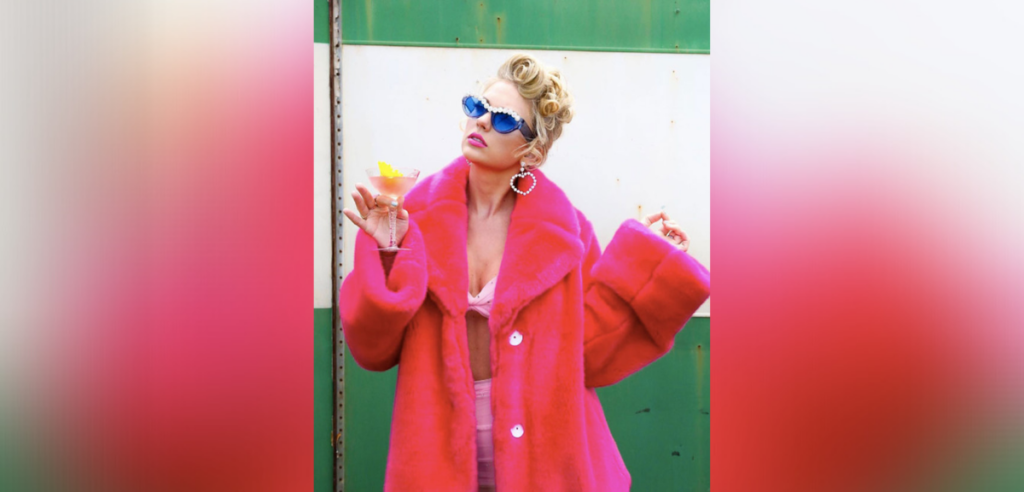Taylor Swift has evolved significantly since she first began her professional music career at age sixteen. Given her all-American country roots, it was thought for years that Swift was most likely conservative, and she was even referred to as being “conservatives’ favorite pop star.” Swift now talks openly about how, for years, she purposefully refrained from speaking out on political issues for fear of backlash. This fear was reinforced by both her management team as well as the media’s harsh scrutiny and criticism of the young star. This all changed in the fall of 2018, when she made her first political statement on Instagram, endorsing a Democratic candidate in the Tennessee Senate runoffs of that year. This turning point is highlighted in Lana Wilson’s Miss Americana, the 2020 Netflix documentary about Swift, in which the singer declares she needs “to be on the right side of history.” She also went on to denounce Trump, saying that she wished she’d done it sooner.
Since taking this baby step, Swift has been fairly vocal about political issues that she feels strongly about. In June of 2019, to mark the start of Pride Month, Swift posted a letter on Twitter that she had written to one of her state’s senators in support of the Equality Act, which the House had just passed. She also shared that she had created a change.org petition “to urge the Senate to support the Equality Act.” In a lengthy prologue to her letter, she wrote, “Our country’s lack of protection for its own citizens ensures that LGBTQ people must live in fear that their lives could be turned upside down by an employer or landlord who is homophobic or transphobic. The fact that, legally, some people are completely at the mercy of the hatred and bigotry of others is disgusting and unacceptable. Let’s show our pride by demanding that, on a national level, our laws truly treat all of our citizens equally.”
Later in June of the same year, Swift released “You Need to Calm Down,” the second single from her 2019 album, Lover, which is where her political rhetoric gets complicated. The song is a support anthem for the LGBTQ+ community, and the music video features many queer icons such as Ellen DeGeneres, the entire cast of Queer Eye, and Laverne Cox to name a few. While many saw the song as powerful, others saw it as a form of queer baiting. Swift herself has not identified as a member of the LGBTQ+ community, so while her support seems to be genuine, it’s problematic for her to release an entire song based on the experiences of a marginalized group she is not a part of, and then to profit off of it as well.
Another problematic aspect of the song is that, in its lyrics, Swift lumps her own experiences of being bullied by the media and individuals online with the systemic oppression of the LGBTQ+ community. For example, the music video includes Katy Perry (whom Swift had a notorious, publicized feud with years ago) in order to make the point that the two pop stars have made up. This is the perfect example of why the execution of the song’s message is so messy. Katy Perry and Taylor Swift, two privileged celebrities, making up after being in a dramatic (essentially self-created) fight should not be involved in the same music video for a song that is supposed to be about championing LGBTQ+ rights. As Spencer Kornhaber of the Atlantic wrote, “Thought this video was about gay rights? Nope, it’s primarily narrative management for superstars.” While I do think Swift’s heart was in the right place in creating “You Need to Calm Down”, she should have done better to educate herself fully about the important issues she chose to handle.
Swift’s centering of herself in political issues is something she has faced criticism for since becoming more politically outspoken. A lot of Swift fans of color, and Black fans in particular, have shared that they feel she is, for the most part, outspoken only about issues that affect her directly i.e. issues that primarily affect cis, white, straight women. While Swift obviously has voiced her support of LGBTQ+ rights, as we saw in “You Need to Calm Down,” she essentially placed herself at the center of the narrative, making it feel like performative activism. Swift has also voiced support for the Black Lives Matter movement on her social media, but many fans feel that she has failed to address racism that exists within the Swiftie fandom. After Swift called out the sexist joke on Netflix’s Ginny & Georgia on Twitter this week, Swifties began flooding the social media accounts of the young actress (Antonia Gentry, 23) who said the line on the show. A lot of what Swifties wrote was extremely racist and sexist, and Swift has yet to address any of the hateful attacks committed in her name. She’s quick to call out misogyny when it affects her personally as a white, privileged woman and yet when her fans say abhorrent racist things to someone who had no choice in terms of saying the line, she stays silent.
I’m not saying that Swift shouldn’t call out sexism when she sees it. I’m saying that she needs to have a better understanding of her privilege as a white woman in the industry and how that affects what she chooses to call out. I’ve been a Swiftie for over ten years now and I’m happy that Swift has found her voice and speaks out about politics. However, I feel it’s important that the fandom realize that Swift is not a perfect, untouchable being and ally just because she’s experienced sexism and is able recognize that. Someone as successful and popular as she with the insane platform and influential power that she holds should be able to educate herself fully about political issues that she chooses to speak about.


